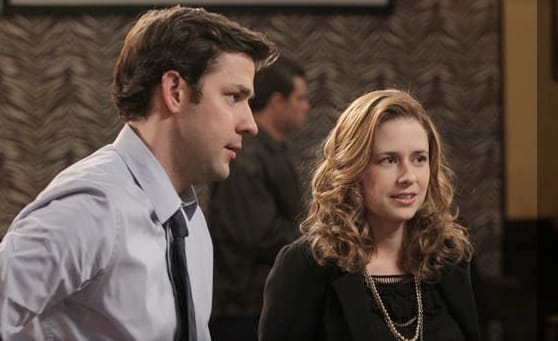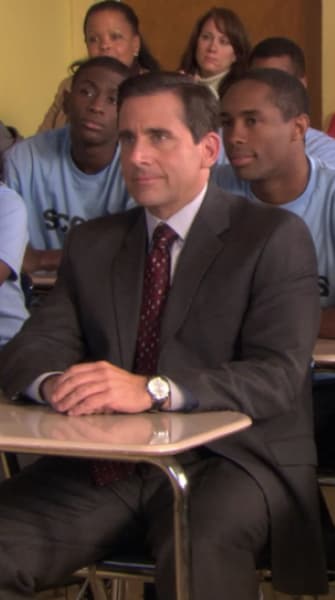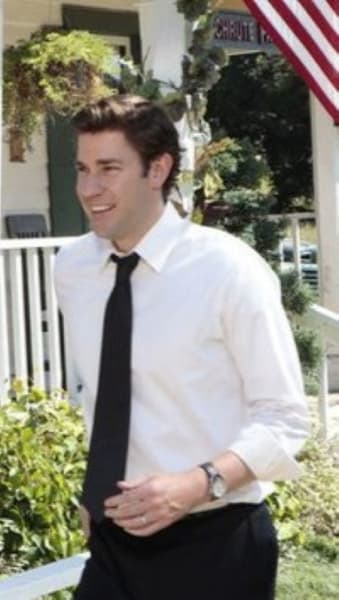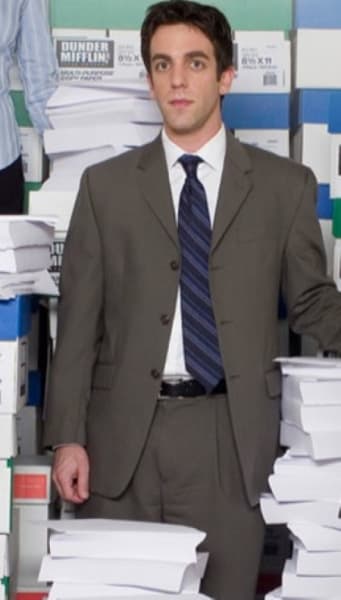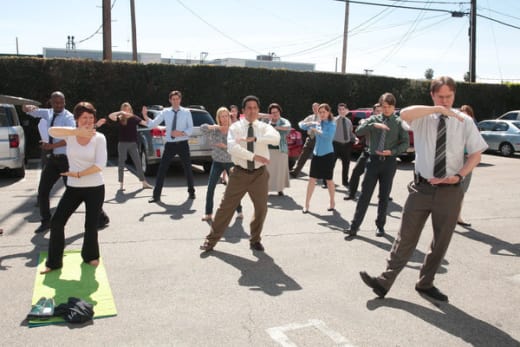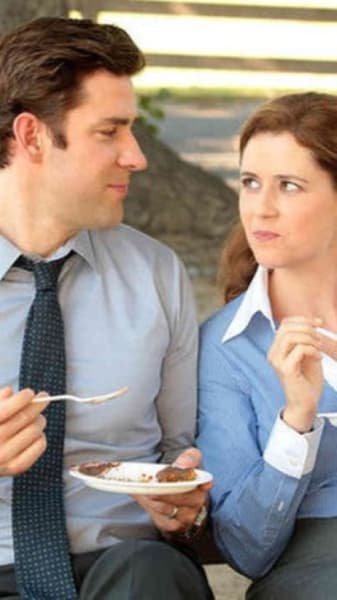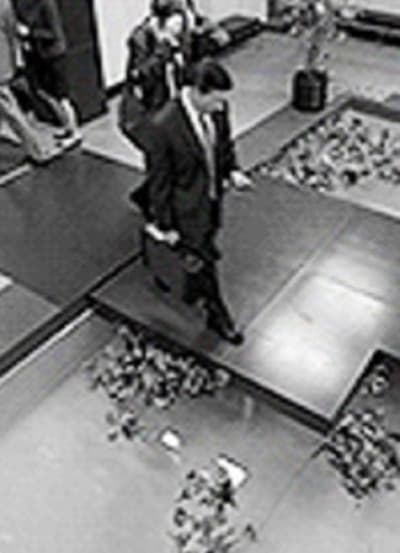Few shows have been as relatable to our everyday experience as the American version of The Office when it debuted in 2005 on NBC. Over the years, characters were flanderized and toned down in keeping with network notes.
But not Jim. The prank-loving protagonist with a hole in his heart for the cute receptionist represented the ideal audience surrogate for us. He wasn’t too attached to the workings of Dunder Mifflin (hence, all the goofy faces in the camera) and invited us to laugh at all the silliness in his vicinity.
But I’d like to present an alternative theory: Maybe Jim wasn’t the real protagonist of the Office. Maybe it was Ryan.
Although The Office ended up being about a found family in the workplace, it’s important to note that it did not start out that way. The general gist of the Dunder Mifflin world at first was that it was a typical American workplace and certainly not one that could inspire passion.
Sure, there are some of us who are passionate about our work, but for the most part, an office is where we put our daily grind. Before the pandemic, of course, the long office hours made American offices particularly constraining.
The inauthenticity of the modern experience, according to The Office, comes from those who maintain the illusion (hint hint: Michael Scott) that an office is more of a work family than it really is.
Jim’s instant appeal in the early seasons came from the fact that he didn’t buy Michael Scott’s version for Dunder Mifflin as some happy family.
Of course, Jim is motivated by other factors: He wants to look cool for Pam, and he sees himself as having enough in his social life to not need a group of mostly older (Creed, Phyllis, Stanley) and less self-aware (Meredith, Kevin) people in it. This is what’s behind his winks at the camera.
At the same time, Jim is affable and stands out for his people skills.
In short, Jim stands safely outside the inauthenticity of Dunder Mifflin, but he’s adept enough to navigate through it. What better hero could you ask for?
As for the case of Ryan: Consider that our favorite temp actually stands out stronger than Jim on both his chief characteristics: Apathy and upward mobility.
Ryan’s first major character-establishing episode was in The Office Season 2 Episode 4, “The Fire.” One of his first talking heads showcases him as a man who wants to define himself through antisocial tendencies.
Whereas Jim makes a show of not caring, Ryan truly walks the walk. When he gets harassed by Michael or Dwight, he is able to brush it off at superhuman levels.
Additionally, his relation to his love interest, Kelly, is further defined by apathy. In contrast, Jim is a sap for Pam despite his better instincts.
Keep in mind that this doesn’t mean that Ryan is more likable by the standards of a sitcom audience that’s thirsty for a love story. But he DOES represent the zeitgeist of the mid-2000s when the job market was not particularly favorable towards young graduates.
Nowadays, young graduates have a lot more power, but Ryan can be seen as more in line with the trend today that’s now known as quiet quitting: A heroic way for lowly peons in the office hierarchy to stick it to the man by slacking off.
As for upward mobility, this characteristic is clear and day. Ryan goes gets the big promotion that puts him over Michael Scott and everyone in the office.
While it’s fair that Ryan didn’t handle the role perfectly once he got it, he at least had the foresight to go to business school and position himself for it. There are also signs that Ryan sees through Jim’s weaknesses.
When Jim wavers about booking a vacation on The Office Season 2 Episode 9, Ryan notably takes a potshot at his senior officemate with a remark that Jim’s the kind of guy who will probably just wind up in Philadelphia for a weekend.
Of course, the show evolved over time thematically.
As it eclipsed the running time of its British predecessor, the show’s producers wisely realized it needed more heart if it was going to outgrow the original.
Instead of portraying the office environment as a soul-draining space that its most heroic participants endure through creativity, Dunder Mifflin became a place where the characters chose to make themselves happier by genuinely treating each other like a family.
In this sense, Ryan and Jim switched statuses quite a bit. Ryan had his Shakespearean downfall, while Jim steadily ingrained himself as part of the team and reaped the rewards in terms of promotions.
The Office is a love story between Jim and Pam, but it’s also a love story between Jim and adulthood, as represented by his office mates.
Over time, Jim learns to be mature toward his office mates, eccentric boss, and even his insufferable nemesis Dwight. By genuinely enjoying their company, work is no longer horrible.
However, office life largely stayed the same between 2005 and the show’s conclusion in 2013. To the degree that the show still appealed to the disillusioned 9-to-5 desk jockey, Jim was no longer effective as an audience surrogate.
Instead, he was the dorky dad with the tendency to overshare about his honeymoon friends or infant’s baby steps. He was the man with the mortgage who was now overly invested in babysitting Michael as co-manager.
Meanwhile, Ryan categorically was never a fit for the Scranton branch of Dunder Mifflin. Instead, he oscillated wildly (and quite entertainingly) between being above and below his peers in status throughout the duration of the show.
This instability is what the average worker went through towards the end of the economic downtown that marked the end of the George W. Bush administration.
Ryan’s detachment from the office was also matched by increasing flakiness.
He notoriously tried to dodge work while Jim was promoted to co-manager; he barely even acknowledged to himself that he never had plans to go to Thailand, and his relationship with Kelly quickly devolved into a running gag.
If you watch The Office online, you know part of Ryan’s turn towards the worse was for comedic purposes.
At the same time, Ryan isn’t so different from most young adults who dream up plans to leave their office jobs with exotic excursions.
To disillusioned office drones, Ryan is still the most relatable character.
At the end of the day, Ryan might be the best character because whether he is heroic or not, his fortunes are the most unpredictable, and that’s the way the world works.
Orrin Konheim is a staff writer for TV Fanatic. Follow him on Twitter and his personal blog at Medium.
